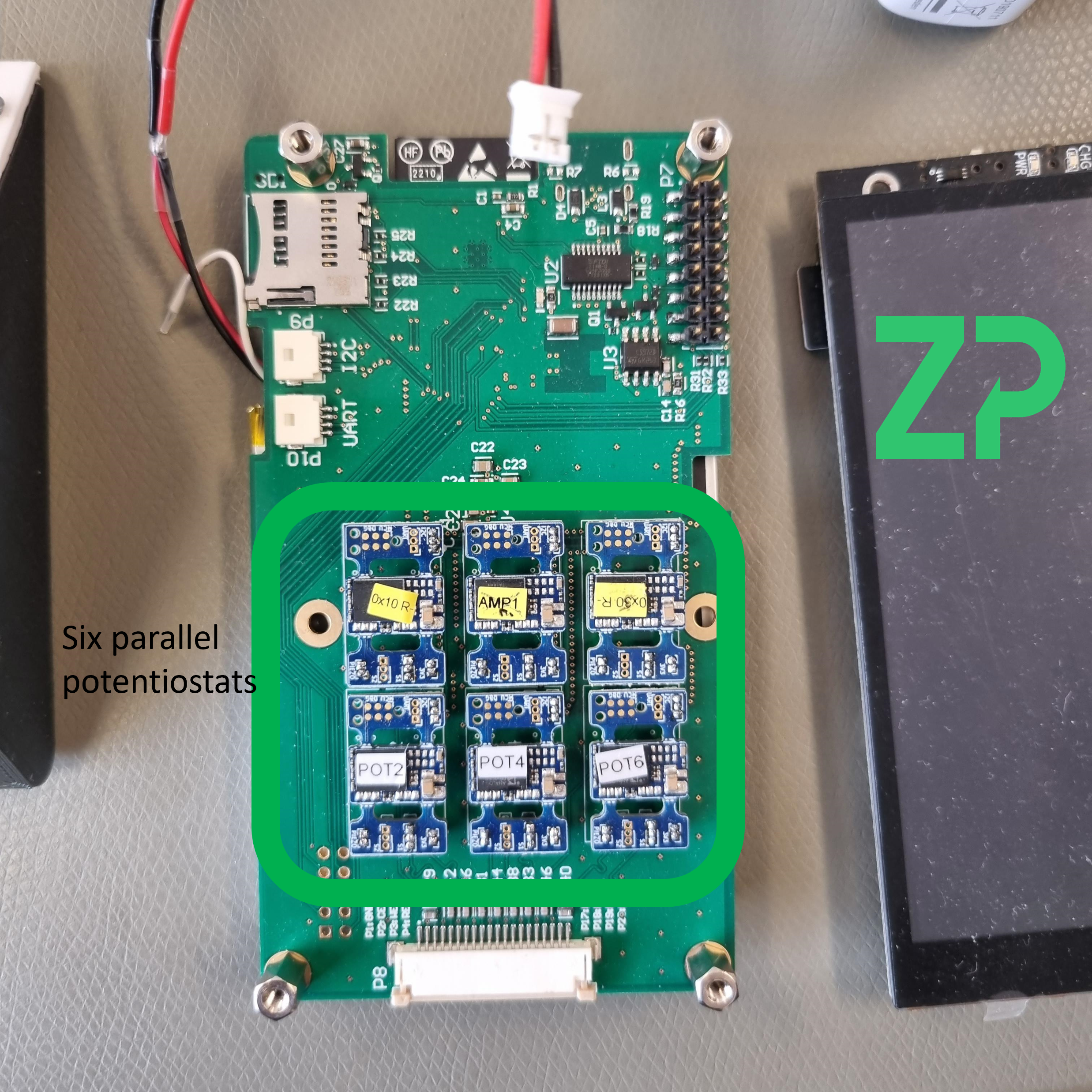ZP offers contract development of electronics around analytical electrochemistry.
Electroanalytical chemistry is a branch of analytical chemistry that focuses on the study of chemical reactions that involve electron transfer. It involves the use of electrochemical methods to analyze and quantify the chemical properties of substances.
At ZP we are expert in all electronanalytical techniques, including:
Potentiometry: Potentiometry is a technique that involves measuring the potential difference between two electrodes in a solution to determine the concentration of ions in solution.
Voltammetry: Voltammetry involves applying a voltage to an electrochemical cell and measuring the resulting current to study the electrochemical behavior of substances.
Amperometry: Amperometry is a technique that involves measuring the current flowing through an electrochemical cell under a constant voltage to determine the concentration of electroactive species in a solution.
Coulometry: Coulometry involves measuring the amount of electrical charge required to complete an electrochemical reaction to determine the quantity of a substance present in a solution.
Conductometry: Conductometry is a technique that involves measuring the electrical conductivity of a solution to determine the concentration of ions present.
Impedance spectroscopy: Impedance spectroscopy is a technique that involves applying a small AC voltage to an electrochemical cell and measuring the resulting current to study the electrochemical behavior of substances.
Chronoamperometry: Chronoamperometry is a technique that involves applying a constant voltage to an electrochemical cell and measuring the resulting current over time to study the kinetics of electrochemical reactions.
These techniques can be used alone or in combination with other techniques to provide more detailed information about electrochemical reactions and the properties of substances in solution.
#ZP
#biosensors

